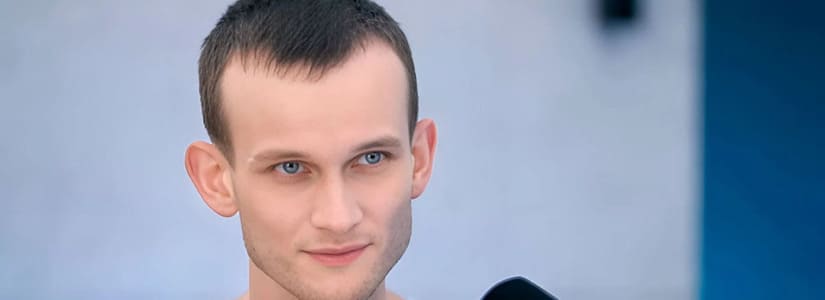TL;DR
- Vitalik Buterin has introduced Circle STARKs, a new cryptographic protocol that enhances blockchain efficiency and security by using smaller mathematical fields.
- The new protocol allows for verifying up to 620,000 Poseidon2 hashes per second on an M3 laptop, reducing computational costs and increasing proof speeds.
- Circle STARKs faces security challenges due to the smaller fields, but mitigates these through multiple random checks and extension fields.
Vitalik Buterin, co-founder of Ethereum, has introduced an innovative crypto protocol known as Circle STARKs, designed to enhance both the efficiency and security of blockchains. This technological advancement marks a significant progress in the blockchain field by employing smaller mathematical fields to optimize cryptographic proof performance.
In a recent post, Vitalik details how Circle STARKs uses smaller fields, such as Mersenne31, instead of the traditional 256-bit fields used in conventional STARKs. This transition allows for a notable improvement in proof speeds and a significant reduction in computational costs. For instance, the new protocol can verify up to 620,000 Poseidon2 hashes per second using an M3 laptop, a considerable improvement compared to previous implementations.
Exploring circle STARKshttps://t.co/WoVeucLXS6
Thank you to @StarkwareLtd friends for the kind support in understanding these concepts!
See also my implementation at https://t.co/qJP3lnaS8m
— vitalik.eth (@VitalikButerin) July 23, 2024
Despite its advantages, the use of smaller fields presents certain security challenges. Small fields have a limited number of possible values, which can make them susceptible to brute-force attacks. To counteract this vulnerability, Circle STARKs implements multiple random checks and uses extension fields to expand the set of values that attackers would need to guess. This approach creates a computational barrier that complicates attack attempts, preserving the integrity of the protocol.

Vitalik Addresses the Limitations and Challenges of STARKs
Vitalik also notes that previous STARK implementations made smaller fields “naturally compatible with verifying elliptic curve-based signatures,” although this sometimes led to inefficiencies due to the large numbers involved. With Circle STARKs, this limitation has been overcome by making proofs more efficient without compromising security.
The Circle STARKs protocol also introduces the concept of Fast Reed-Solomon Interactive Oracle Proofs of Proximity (FRI), which ensures that a function is a polynomial of a specific degree. This feature is crucial for maintaining the integrity of the cryptographic process, ensuring that non-polynomial inputs do not pass the proof.
According to Vitalik, Circle STARKs promises to offer a combination of improved efficiency and robust security for blockchain technology by leveraging smaller fields and new mathematical structures to optimize computational performance. This innovation represents a necessary advancement for the industry, with potential implications for the future of security.










